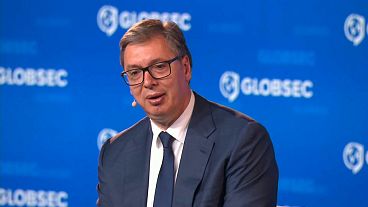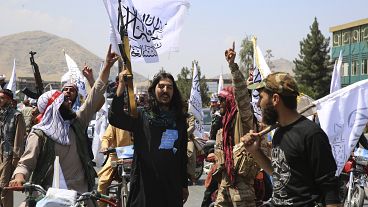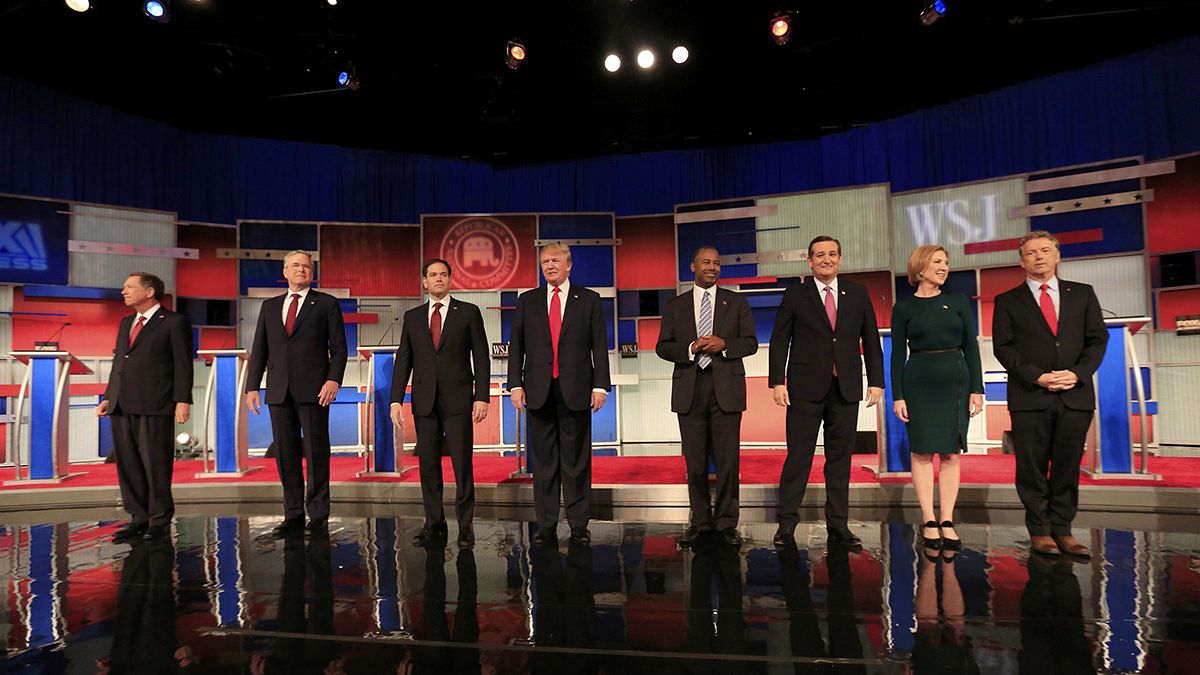After three chaotic debates since September, the fourth televised get-together of the Republican candidates Tuesday night in Milwaukee was by far the most substantive and policy-oriented.
But it was also the most lifeless debate with only few clashes between the eight leading contenders who remained mostly cordial – a far cry from the sometimes nasty personal attacks to which the TV audience was used in the previous rounds.
No candidate was able to score a breakout point that would shake up the national conversation or would change the existing pecking order, although some delivered surprisingly strong performances.
This debate stage this time had a different look and was the smallest to date, as Chris Christie, the governor of New Jersey, and Mike Huckabee, the former governor of Arkansas, had failed to qualify.
The remaining candidates sparred over the US financial system, immigration and the right strategy in Syria, exposing deep rifts in the Republican Party and starkly different strategies for winning the election.
In one of the evening’s most surprising developments, the Republican candidates turned sharply on the financial interests who have long underwritten the party.
Former Florida governor Jeb Bush, in a slightly more animated performance than he has delivered in past debates argued for higher capital requirements for banks to protect against another crisis.
Ohio Governor John Kasich, a former managing director of Lehman Brothers, blamed “too much greed” on Wall Street, and Senator Ted Cruz of Texas said big banks “absolutely” never should be bailed out again.
Strikingly, Bush also didn’t shy away from the issue of immigration, a topic that has gotten him into trouble with many conservatives.
In so doing, he set off another one of the sharpest exchanges of the night by criticizing Donald Trump’s plan to deport an estimated 11 million people now living illegally, arguing that it would weaken the party’s chances for winning the White House.
“They’re doing high-fives in the Clinton campaign right now when they hear this,” Bush said. “We have to win the presidency, and the way you win the presidency is have practical plans.”
The ensuing exchange illustrated the fault lines immigration has created in the party. Bush got support from Kasich, who called Trump’s plan a “silly argument.”
That triggered an immediate counter-punch from the co-front-runner Trump, who shot back that he’s built an empire worth billions. “I don’t have to hear from him,” Trump said of Kasich.
But Cruz, who noted that he is the son of immigrants, took the harder line more popular with the party’s conservatives.
In a night filled with substantive questions, Kentucky senator Ran Paul in his best debate performance so far forced quite possibly the most memorable — and most critical — exchange: a showdown with fellow senator Marco Rubio over taxes, spending and what policies count as “conservative.”
The exchange started with Rubio laying out why he has proposed an expanded child tax credit for working families, which is highly controversial among Republican economists.
Some of them believe such a credit is a good conservative plan to boost the middle class, and some believe it detracts from the more economically important goal of cutting marginal tax rates — particularly the top rate — as much as possible.
Paul leaped in to attack Rubio on that last point. The child credit, he said, was “not very conservative.” Rubio pushed back, and then Paul went for more: He ripped Rubio for wanting to increase military spending while also cutting taxes.
“How is it conservative to add a trillion dollar expenditure for the federal government that you’re not paying for?” Paul said. “How is it conservative? How is it conservative to add a trillion dollars in military expenditures? You cannot be a conservative if you’re going to keep promoting new programs you’re not going to pay for.”
Several of the candidates rejected a minimum wage hike, saying it will increase unemployment and put the United States at a competitive disadvantage.
“I hate to say it but we have to leave it the way it is,” Trump, a billionaire, said of the minimum wage, now $7.25 (6.70 euros) an hour as set by the federal government. “We can’t do this if we are going to compete with the rest of the world.”
Retired neurosurgeon Ben Carson, who is running neck-and-neck with Trump in the polls, argued that raising the minimum wage leads to joblessness, “especially in the black community.”
Though not all of the eight candidates on the stage addressed the minimum wage, Kasich was the only one who spoke up in favor of an increase.
According to pundits, Rubio, Paul and Cruz were among the debate winners, whereas Trump, Carson and Bush got some of the lowest marks. The candidates will meet again for the next debate on December 15 in Nevada.












